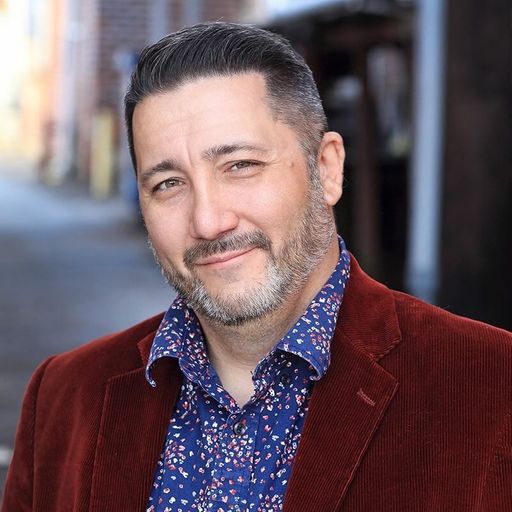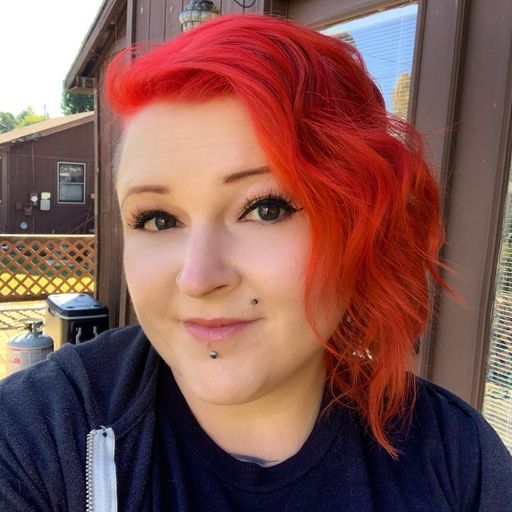In the early morning of August 4, 1917, a gas explosion ripped through the southern end of the West Kentucky Coal Company’s No. 7 mine in Clay, Kentucky, killing 62 of the 153 men below ground. It remains the deadliest mining disaster in Kentucky history.
The tragedy did not end there, however. The many graves the townsfolk of nearby Barlo dug to bury the dead unintentionally fed long dormant, underground forces the bodies needed to exact their revenge. In one terrifying night, the dead men roared back to life and incinerated Barlo and its inhabitants, with the lone exception of a 10 year-old girl named Sarah Avery.
At least, that is how the story of the very real No. 7 mine explosion concludes in season 1 of Old Gods of Appalachia, an “eldritch horror anthology podcast” set in an “Alternate Appalachia.” Co-created by Steve Shell and longtime friend and fellow Wise County, Virginia, native Cam Collins, Old Gods of Appalachia has been bewitching listeners since October 2019. Last Halloween, The New York Times praised the podcast’s “nightmarish tales of the folks living in the hills and hollers, surviving on the land and disturbing the earth below.”
The recurring theme in its episodes of long buried, dark forces bursting into the light aptly describes Old Gods of Appalachia as a whole. Its stories spotlight minority, queer and non-Christian people and cultures while also exposing the racism, xenophobia, predatory capitalism and environmental destruction that have long silenced those voices.
“[We’re] having to drag them into the light now because we buried them,” Shell explained while on a Zoom call from his home in Asheville, North Carolina. “We have to own that.”
*
Old Gods was born over two days of back-and-forth commutes between Asheville and Whitesburg, Kentucky, in 2018 where Shell, a host and performer for the live storytelling series The Moth, was organizing an event. “If you’ve driven through coal country,” he explained, “you know you’ll round one curve in the mountain and everything is super lush and overgrown . . . and then you take two curves down the mountain, and everything is dead.”

Ever the storyteller mining for material, Shell took his cues from the landscape and conjured up two women, which he described as “a matriarch of the wild and the overgrown and a matriarch of the dead that’s left in the wake of what we’re doing to [the land].” Appalachia’s struggles were also circulating in his mind; along with the everpresent think pieces on the opioid crisis and bodies ground up by the mines, he had also been reading glowing prophecies of prosperity written at the turn of the 20th Century that wrongly predicted Appalachia would become the new Rust Belt. He wondered: What had gone wrong?
“There’s always a problem [in Appalachia],” Shell said. “A resource runs out, or time catches up, or the health stuff, or politics, or xenophobia, or racism…all the things that get trapped in these mountains and never leave. What if there was a reason for that? What if there was a curse?” Drawing on Native American ideas of the area as a “dark and bloody ground,” as well as their love of horror, Collins and Shell began to imagine what kind of ancient, dark forces might be contained between the natural boundaries of Appalachia – as well as what kind of humans might be shaped by breaching these boundaries.
The podcast’s focus on how land can shape us is something Nicholas Reich, a doctoral candidate in English at Vanderbilt University, appreciates. “Instead of thinking about, ‘What are we doing to the land?’” he said, “It’s, ‘What is the land capable of doing to us if we don’t pay attention to certain borders?’” He sees a lot of overlap between the Appalachian narratives about extraction industries he studies and the themes in Old Gods.
As a horror fan, Reich also praises the creators’ refusal to pathologize the people who inhabit their Alternate Appalachia. “Appalachia gets all the wrong kinds of horror,” he explained, “a cultural horror where the people are the scary part.” In contrast to Deliverance-style stereotypes, Old Gods is populated with complex, three-dimensional characters of varied religions, sexual orientations and origins.
This diversity is intentional, born out of Shell’s childhood frustrations at the level of conformity he experienced growing up in Wise County. “Everyone wanted to be low-key, [Protestant] Christian and white,” he recalled, pointing out that he didn’t know his best friend was Catholic – or what that meant – until the seventh grade. In Old Gods, it’s a family of queer witches who occupy the moral high ground.

For many native Appalachian fans, seeing themselves reflected in these characters is powerful. Kingsport, Tennessee, native Bridgette Johnson singled out the Witch Queen, the original “matriarch of the overgrown,” who has no desire for men or women. “As someone who is ace [asexual], it means the world to see her in this story set in my homelands,” she said.
In the destruction of Barlo, Collins and Shell highlight not only the difficulties faced by Black Appalachians but also the destructiveness of racism and segregation. Of the 62 miners who perished in the real disaster, 51 were Black and brought in by the company to break a tense, weeks-old strike. Their bodies and their families were neglected by the company, the press and the Bureau of Mines investigators – a mistreatment the podcast portrays through the hurried mass graves the white townspeople of Barlo dig for Black miners far outside town. This callous prejudice and desecration comes back to haunt them when the old gods resurrect both the Black and white dead – indistinguishable through their charred flesh – in response. As Shell said, “We enjoyed burning down a racist town.”
Then there are the monsters. It’s a sign of their storytelling prowess that I ask Collins and Shell about them expecting an answer about tales from their mamaws of sinister deer demons and armies of boy ghosts stalking the forests for the company men whose greed killed them. Mostly, though, memorable creations like “The Thing Whose Name Sounds Like Horned Head, But Is Not” (who Shell insists is not a demon but, rather, “a fractional hive mind of a cosmic id that wants to eat the universe”) and the ghost boys are completely of their own making. “[Our] goal is to make our folklore feel authentic,” Shell said. Collins, herself a practicing witch, often consults with fellow practitioners to make sure that the protective charms and herbal remedies are accurate.
Each episode of Old Gods takes anywhere between two hours and two days for Shell to record, depending on the number of sound effects or voices required. While he and Collins have occasionally collaborated on a script, they usually write episodes separately and offer feedback. Collins, whose style Shell describes as a “slow, poisoned, very long dagger,” is the most rigorous editor of the two, reining in Shell’s wordier style. “I am a giant purple prose cloud of locusts trying to pull you in 90 different directions,” he admitted.
As unsettling as that depiction sounds, listeners usually describe the sounds of Shell’s Appalachian English dialect more favorably. Niamh Carey, listening from Dublin, described it over Zoom as “rumbly” and “relaxing.” “This could be your uncle who tells a really good story round the corner,” she said.
Such global reactions hold a particular fascination for Kaly Thayer, a master’s student in applied linguistics at Ohio University studying the podcast’s use and dissemination of Appalachian English. “Dialect can create belonging, but it also creates othering,” she explained. This phenomenon happens within the podcast, as when a character leaves Appalachia for Texas in the subscriber-only series “Build Momma a Coffin” and comes back sounding completely different.
Thayer is interested particularly in whether global listeners feel othered or included by the dialect and how either reaction colors their appreciation for the series.
“As a linguist,” she explained, “I am excited this documentation exists and that it’s as authentic as it could be to the people in this region and the stories that they’re telling.”
For Appalachian fans, Shell’s narration lands close to the bone. “There was one point [when] I teared up because the way Steve said a word – and I don’t even remember what it was – was the exact same inflection and way my papaw said it,” Johnson said. “I never thought I’d hear something so similar again.” Multiple listeners echoed the same sentiment: The podcast sounds like people they’ve known and loved all their lives.
Even the supernatural storylines have a ring of truth to them, according to some listeners. Jacob Nolan, via email, shared how the older generations of his Pennsylvania and southeastern Ohio family would get a harrowed look when recounting their younger days in the mines. “[T]he show captures that horror, the bleakness, the terror, the invisible fear of the mine, in a way that while not real, certainly isn’t inaccurate. There is evil in there,” he wrote.
*
Currently, Collins and Shell are in the middle of Season 2, subtitled “In the Pines.” Set in the fictional town of Baker’s Gap in eastern Tennessee in 1927, its first half centers on a group of preteen boys who find more than they bargained for on a trip to their secret hangout, Death Island.
Shell drew on his own boyhood for these Tom Sawyer-esque escapades, even taping and mixing his own and his cousin’s laughs to punctuate a juvenile joke. Collins is in charge of the season’s second half, which has begun with the gruesome death of a moonshine peddler in the middle of the night.
As the podcast and its popularity continue to grow – over a million unique downloads since they launched – Collins and Shell plan to bring in more writers on a limited basis. “I think it’s really important that we work with Appalachian writers,” Collins said, “because so many other people have gotten it wrong – and continue to get it wrong.” They especially hope to find a Black Appalachian writer interested in writing eldritch horror.
In the meantime, they continue to interact with their “Family” of listeners on their Facebook and Patreon pages, Discord server, Twitter and the like. And they continue to mine the histories and stories of Appalachia for the darkness and the light with a sense of complexity and character that outsiders rarely manage.
“We don’t want to paint anybody with rose-colored glasses – and I don’t think that we do,” Collins said. “But we don’t write poverty porn.”
Sara Murphy is a freelance writer living in the mountains outside of Asheville, North Carolina. Her work has appeared in Folks and Supermajority News.
Editor’s Note: This story has been updated to reflect that West Kentucky Coal Mine No. 7 was located in Clay, Kentucky.



